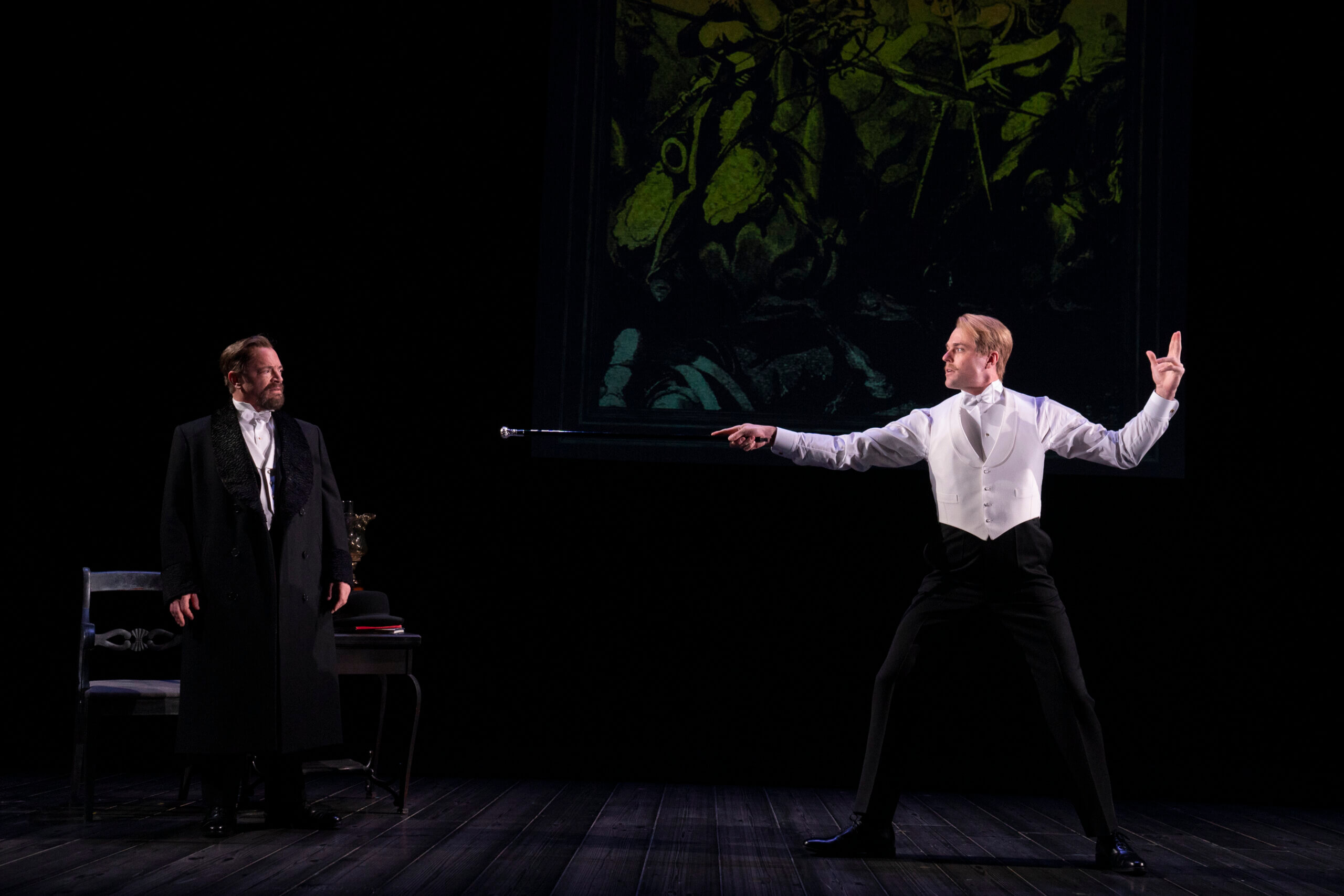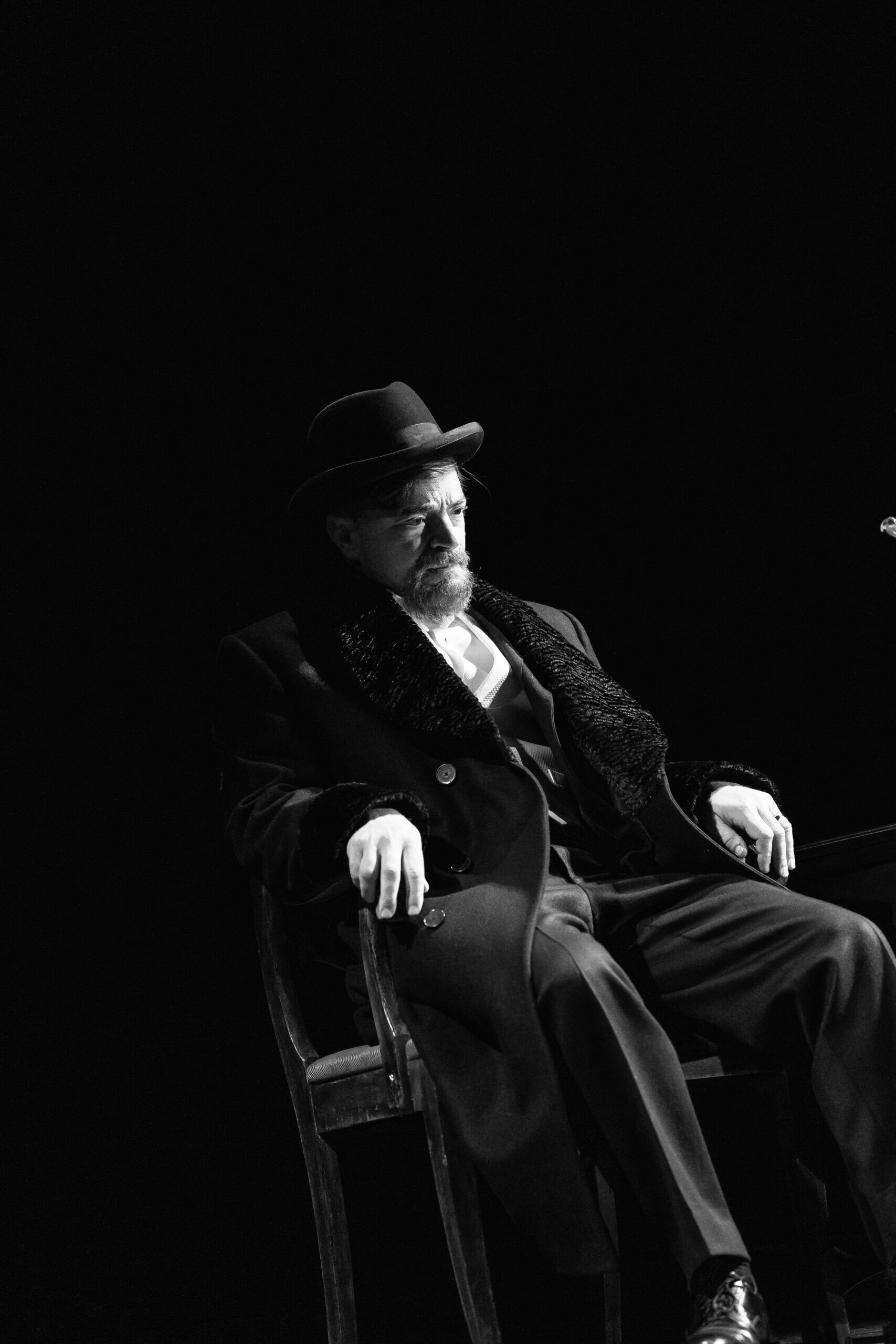Actor Joshua Malina is taking the stage once more as the patriarch in Tom Stoppard’s “Leopoldstadt” on Broadway.
Known for his roles on “The West Wing” and “Scandal”, among others, Malina recently reclaimed his theater roots in “What We Talk About When We Talk About Anne Frank” at the Old Globe Theater in San Diego. When the opportunity came to join the cast of “Leopoldstadt,” he had to jump on the opportunity.
“It’s a complete thrill. I did my first play in decades this summer at the Old Globe Theater in San Diego and at the time of my life and it made me remember why I love acting,” said Malina. “Not that I’ve soured on it, but I’ve just been doing TV for a very long time and the thrill of doing a play was just revelatory to me.”
After finishing his run on “What We Talk About When We Talk About Anne Frank,” Malina was equal parts excited and surprised that the opportunity to perform in “Leopoldstadt” came so soon.
“I feel like I just willed this job into being somehow because I finished my run in September or October. I just desperately wanted to do another play and I can’t believe it happened all again this quickly,” said Malina.
“Leopoldstadt” is set in 1899 Vienna and follows a Jewish family over the course of 50 years. Malina plays Hermann Merz, who was born Jewish and is a textile factory owner. The play follows Merz and his family as they navigate life and anti-Semitism, Viennese culture and two World Wars.
For Malina, getting back into a theater headspace after so many years of television was a welcomed challenge.
“One of the best pieces of film acting advice that someone gave me early on in my career was to remember that the camera can read your mind, and you have to let go of all of that in stage work because it’s just a different thing,” said Malina. “There’s no director to tell the audience exactly where to look when and to draw your attention to the smallest gesture or facial expression. It’s a different muscle, and being surrounded by these incredibly great actors, it’s really helpful.”

“Leopoldstadt” officially opened on Broadway in 2022, with Malina officially taking on the role on Merz on March 14, 2023. This wasn’t the first time Malina joined a fully formed production, having had this experience in his television career.
“Coming into a play that’s already been established as someone who’s taking over a role is hugely intimidating. It’s very daunting and I feel like I took the job before I allowed myself to really think about what it was because right now, it’s a cast of about 38, and everyone is performing at top level,” said Malina. “The thing is like a well-oiled machine and my job is to drop into this great ensemble and try not to gum up the works. I do feel like in joining ‘The West Wing,’ there’s a sort of similar DNA between the two challenges. To join a great ensemble of great actors and do some great writing with them, I feel like that’s what I had to try to do in ‘The West Wing’ and that’s what I’m attempting to do here.”
As a Jewish man himself, Malina tapped into the knowledge of how it was for the Jewish community during from 1899 to 1955, the duration in which “Leopoldstadt” takes place. While things may start okay for Malina’s character, the family goes on its own journey in an effort to stay safe, and that is something that he believes can still be taken to heart in 2023.
“For Hermann, assimilating was a way to build on his grandfather’s and father’s success in this business that’s been in the family for a long time. Things look pretty good for Jews in Vienna in 1899, they were not in positions of power, certainly, and there’s still prejudice to be found, but Jews can be upwardly mobile, they can own a textile factory, they can make money, they can be accepted in the cultural world of Vienna,” said Malina. “By means of assimilation, they can rise even higher still. There’s a certain, I guess complacency, that my character has that will maybe not stand the test of time, but it’s also a possible thing to come and watch the play in 2023 and feel a similar complacency and realize that you might not be realizing. You might be getting swept up in history yourself, and one doesn’t know where culture and politics and history are going to take us, knowing what we know now about what happened during that time period, particularly for the Jewish community.”
Malina also noted that though there is a heaviness to the subject matter explored in this play, there are moments of light along the way.
“I have been warned that performing the piece eight times a week is it takes a heavy physical and emotional toll. What I would say is while the audience goes on that journey too, there are also moments of great lightness and joy,” said Malina. “Regardless of how things end for most of these characters, you see them enjoy good times and functioning as a family and you see all the relationships and the friendships. There’s joy and laughter in the play as well, but certainly, there’s a heaviness of history that also sits upon the proceedings.”
Malina says that those who come to see “Leopoldstadt” has something that anyone who watches can take home with them at the end.
“I’ve seen some people refer to it as a Holocaust play or as a Jewish play and while it has great Jewish substance to it and the Holocaust looms, it would be very reductive to think of it simply as a Holocaust play because it isn’t that,” said Malina. “Ultimately, it’s a play of universal appeal that is about a large thriving living family and all their relationships. I think anybody can get something out of coming to see the play.”
For more information about “Leopoldstadt,” visit leopoldstadtplay.com.

Read more: Broadway’s Parade Triumphs Amid First Performance Protests































